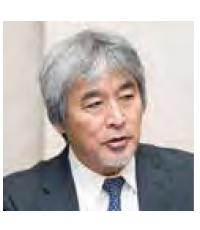This is the 2009th roundtable discussion that started on November 11, 19.During this time, discussions on university entrance examination reforms accelerated, starting with autumn admission.There are several hints, various backgrounds, and factors that can be considered in this reform of the university entrance examination system. It is undeniable that there was a sense of crisis in industry and universities toward the mindset that made things good.
Regardless of the impact on university entrance examination reform, keywords such as high school connection, descriptive formula, and multifaceted / comprehensive evaluation are meaningful only when placed in this context.This time, in order to foster the "heart to challenge without fear of failure" and "heart to challenge" that are indispensable for living robustly in the global society, what are the challenges of high school and how to solve them? We had you talk about whether you are working on it. (October 10 at Gakushi Kaikan)
This year at Kyoto University
Yamagiwa:Universities are accelerating various reforms now, and the three pillars are internationalization, industry-academia collaboration, and securing autonomous funding.In terms of education, internationalization aims to increase student mobility.At Kyoto University, we have signed student exchange agreements with more than 100 universities and established a credit transfer system, so we have the option of entering Kyoto University and then taking on the challenge of going abroad.
Since it is okay to have various forms of study abroad, we started the "Omoro Challenge" (Kyoto University Experience-based Overseas Travel Support System-Dingkai Kanaekai Program) last year.The period is 3 weeks or more, and the destination is not limited to the university.Students will plan it by themselves, select destinations, and have them negotiate in advance. We will support up to 30 yen if you pass the examination with a target of 30 cases.Last year, we hired 115 out of 31 applications, but our destinations include Africa and other countries.This year, we received 143 applications, more than last year, and the number of undergraduate students is higher than expected, and the number of girls is increasing.
The "Student Challenge Contest", which started two years ago, is for students to make an activity plan, post it on the web if it is interesting, and collect funds from the general public by crowdfunding.We also have an "interdisciplinary research idea contest".It is also very important to convey the message from the university to high school students, and every year we hold a "summer school" that provides mock lessons to high school students, and a "science festival" in collaboration with prefectural boards of education. increase.
At science festivals, selected teams of high school students are invited to come to Kyoto University to make presentations and compete, but there are also ideas and initiatives that do not seem like high school students.In "ELCAS", which started from the Faculty of Science, our faculty members give lectures, experiments, and guidance to high school students twice a month on weekends, which are similar to those of the university.19 people participate in 135 fields of basic courses that give lectures and practical training, and 18 people from 28 fields participate in specialized courses that are assigned to laboratories and conduct experiments and practical training with a small number of people.Also, from this year, we are expanding the field to the humanities.
At first, there was a tendency to avoid the special entrance exam because it was a high hurdle, but if there was enthusiasm, I continued to explain that factors other than ability would be subject to selection, and I realized that the understanding of high school and high school students gradually expanded. doing.I have high expectations for how much the number of enrolled students will grow, and I would like to expand the scope further in the future.
In industry-academia collaboration, it was selected as the first three universities in Japan's designated national university corporation system.It was surprising that he was expected to become a leader not only in the natural sciences field but also in the humanities and social sciences. I would like to create a core that will disseminate it internationally.
As part of this, the "Yoshida College Concept" is recruiting international students who can take lectures and seminars in Japanese.We are also recruiting excellent undergraduate students from overseas and are currently constructing a dormitory where we can live together with Japanese students.Currently, we plan to increase the number of international students, mainly graduate students, from about 2,200 to more than 4,000 within a few years.In addition, as a recurrent education, we launched the "Kyoto Academia Forum" at 9 universities in collaboration with 10 national, public and private universities of cultural arts in Kyoto, and opened a dedicated office in Tokyo Marunouchi this fall.

Professor Juichi Yamagiwa, President of Kyoto University

